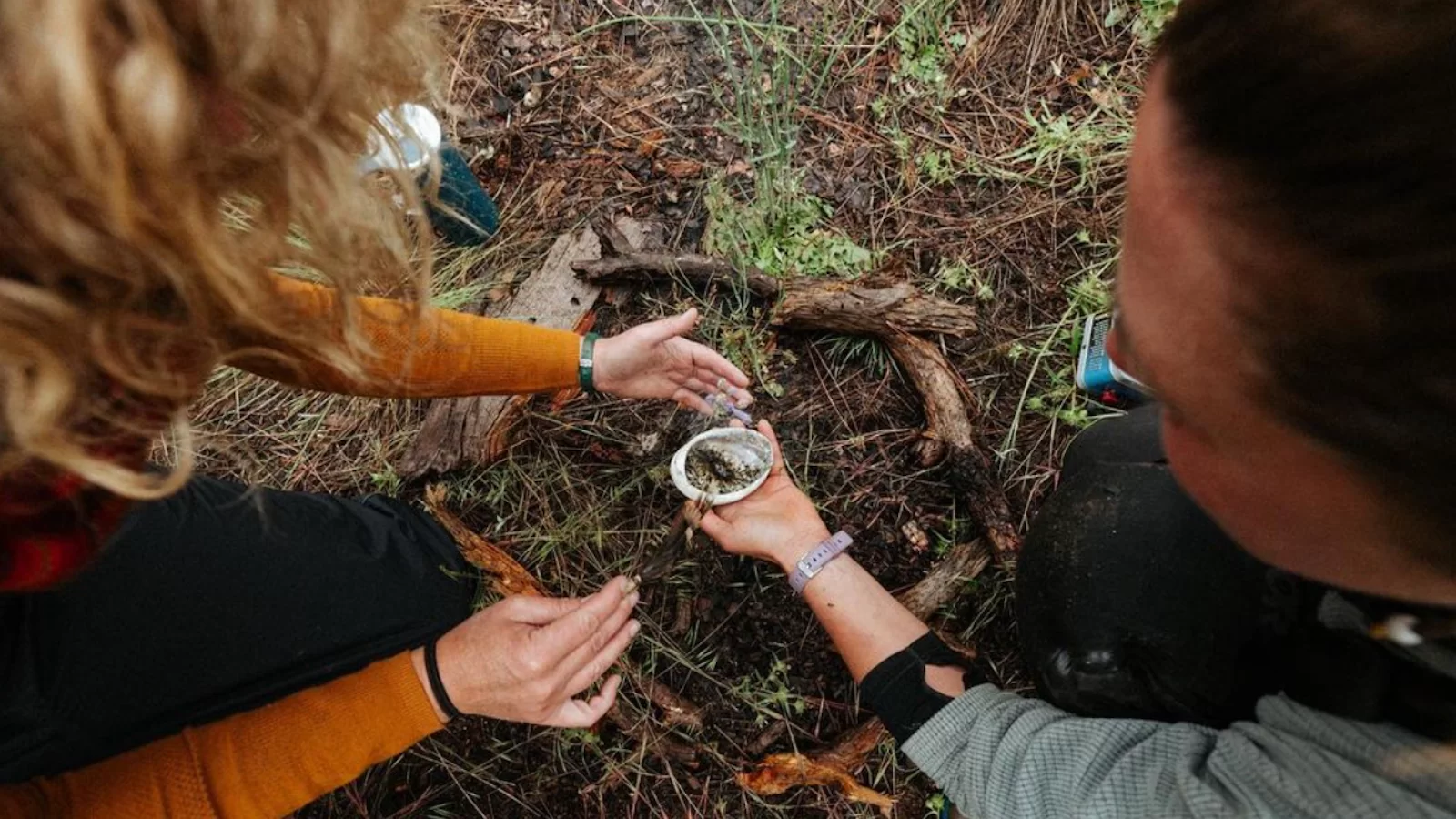In a world marked by the hustle and bustle of urban life, where the cacophony of technology often drowns the whispers of the natural world, there exists a passionate advocate for the healing power of nature. Gretchen “Grae” Gerlach, a remarkable guide on a transformative voyage, has dedicated her life to unraveling the intricate relationship between human experiences and the environment that surrounds us.
With innovative methods deeply rooted in her Montana upbringing and influenced by her work with rites of passage, Gerlach invites us to explore how nature fosters personal growth and transformation. This story delves into her unique approach, revealing the profound interplay between wilderness and well-being while highlighting the reciprocity that sparks healing, self-discovery, and an invigorated connection to the world.
A childhood shaped by nature
Gretchen Gerlach's journey into the world of nature and rites of passage began in her early years on a dude ranch in rural Montana. Surrounded by rugged landscapes, where people sought to reconnect with nature, she developed a unique orientation and culturing towards the natural world. It was a place where individuals came to get dirty, play and commune with nature, a place that taught her the cycles of the seasons, solitude and the importance of reciprocity.
In this environment, she witnessed firsthand the transformation that occurred when people who were disconnected from nature immersed themselves in its embrace.
As Gerlach reminisces about her childhood, she reflects on the deep understanding of land and watershed, as well as the reverence for the natural world instilled in her for her mother Elizabeth. It was a foundational experience that would later guide her on a path of helping others find their way back to nature, and to themselves.
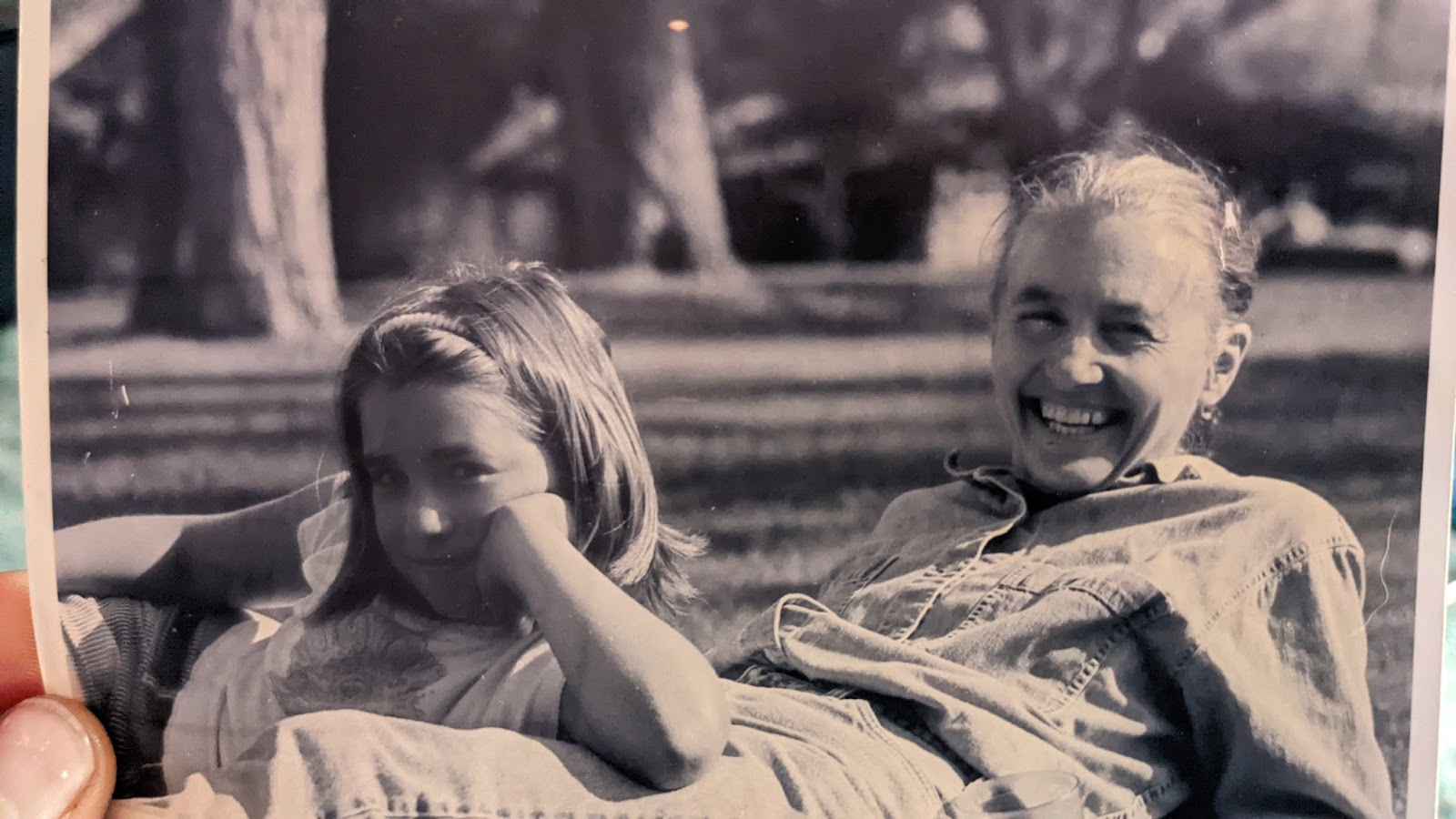
Young Gretchen and her mother. Photo provided
The calling to work with ‘nature in people’
From a tender age, Gerlach harbored a profound calling, one that she articulated despite her speech impediment—a calling to work with "nature in people." This innate desire, though initially met with corrections from others, would remain steadfast throughout her life.
People would often try to correct her: “I think you mean people in nature.” To which Gerlach would respond: “No, I want to work with nature in people.” It was a calling that would lead her to explore various avenues, including horticultural therapy and wilderness therapy, to understand how humans could find wholeness and reciprocity in wild and natural settings.
However, it wasn't until she discovered the School of Lost Borders that she truly found her community and strong sense of belonging. It was like "remembering herself," a realization that she indeed wanted to work with nature in people. For over 40 years, the School of Lost Borders has provided vision fasts, guide training and other programs that offer initiatory, transformational experiences to those seeking growth, insight and restoration. The school is headquartered in Payahuunadü, also known as the Owens Valley, in California, which is ancestral and contemporary land of the Nüümü and Newe people.
The School of Lost Borders became the foundation for her journey, offering a framework and modality for individuals to remember their natural selves and find belonging in the natural world.
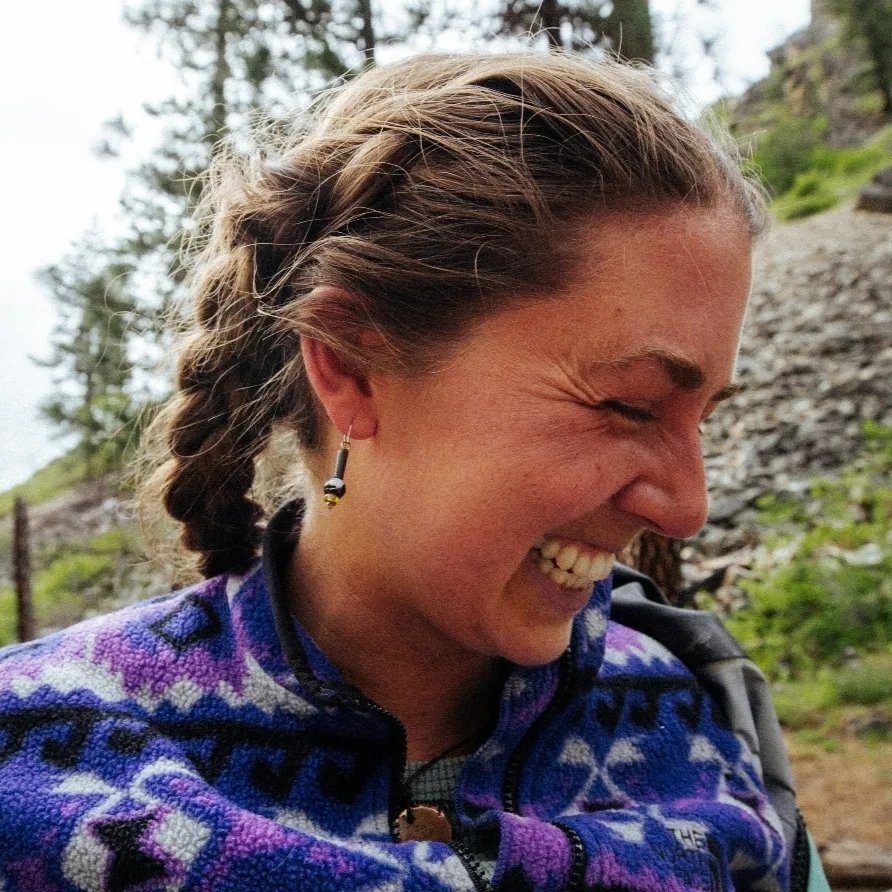
Gretchen “Grae” Gerlach | Photo provided by Gretchen Gerlach
Rites of passage: marking the transition
Rites of passage, as described by Gerlach, are intentional markings of transition from one phase of life to the next. These rites offer a held space for individuals to move from their old stories into new ones, a necessary process for all humans. Just as nature undergoes constant change and evolution, so too must humans embrace the movement in their lives to maintain balance.
Gerlach emphasizes that rites of passage are more than just life transitions; they are opportunities to mark significant changes intentionally.
In a society where many life transitions go unmarked and undigested, these rituals provide a container for individuals to navigate change and emerge transformed. Traditional examples of culturally held and inherited rites include Bar Mitzvahs, Sweet 16 parties, graduations, birthdays, weddings and funerals. But they can also be self-led, and co-created by humans and nature.
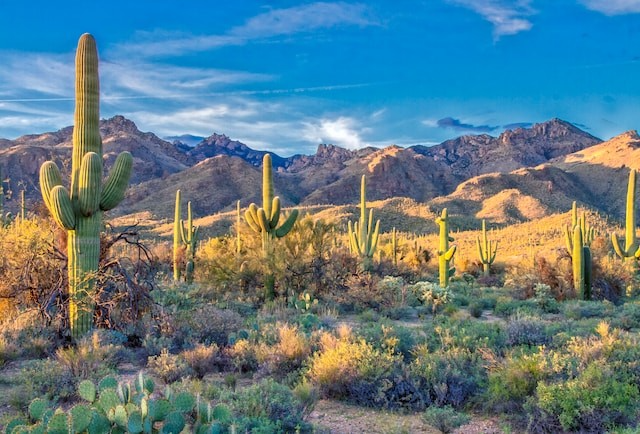
Photo by School of Lost Borders
The process of a rite of passage
Gerlach’s work as a guide in rites of passage is inspired by the School of Lost Borders format of vision fast programs. It involves immersion in wilderness and solitude, creating a safe environment where individuals can simply be with themselves and connect mind, body and spirit.
Additionally, it serves as a way to connect and create relationships with other people through council and storytelling. The process typically begins with a few days of preparation in a backcountry setting, where participants articulate their specific intentions for the rite. These intentions may relate to a current life transition or a desire to mark an uncelebrated passage from the past.
The core of the rite is a period of solitude and ceremony, ranging from a few hours to as long as four days and four nights. During this time, participants disconnect from distractions, often fasting from food, and live exposed and in close contact with the surrounding nature as well as their own internal nature. It's a time to explore the edge of one's comfort zone and delve into self-generated ceremonies that mark the transition. After this period of solitude, there's a gradual return to community and an essential step of sharing and gifting their story to the group of one's journey, bridging the old story to the new one.
Reciprocity and connection with nature
For Gerlach, the process of a rite of passage aligns the body, mind, soul and spirit, creating a profound and holistic experience. Nature plays a crucial role in supporting this process by removing distractions and helping individuals to express their human nature. “Nature supports ceremony," as she puts it, allowing for a deeper connection to one's own essence.
Reciprocity with the natural world is an essential aspect of Gerlach’s work. She emphasizes the need to move beyond mere consumption-oriented interactions with nature and into a space of relationship and respect.
“Our separation from nature is causing harm not only to our species but to all life,” she said. “By engaging in reciprocity with the natural world, we can restore balance and remember our place in the interconnected web of life.”
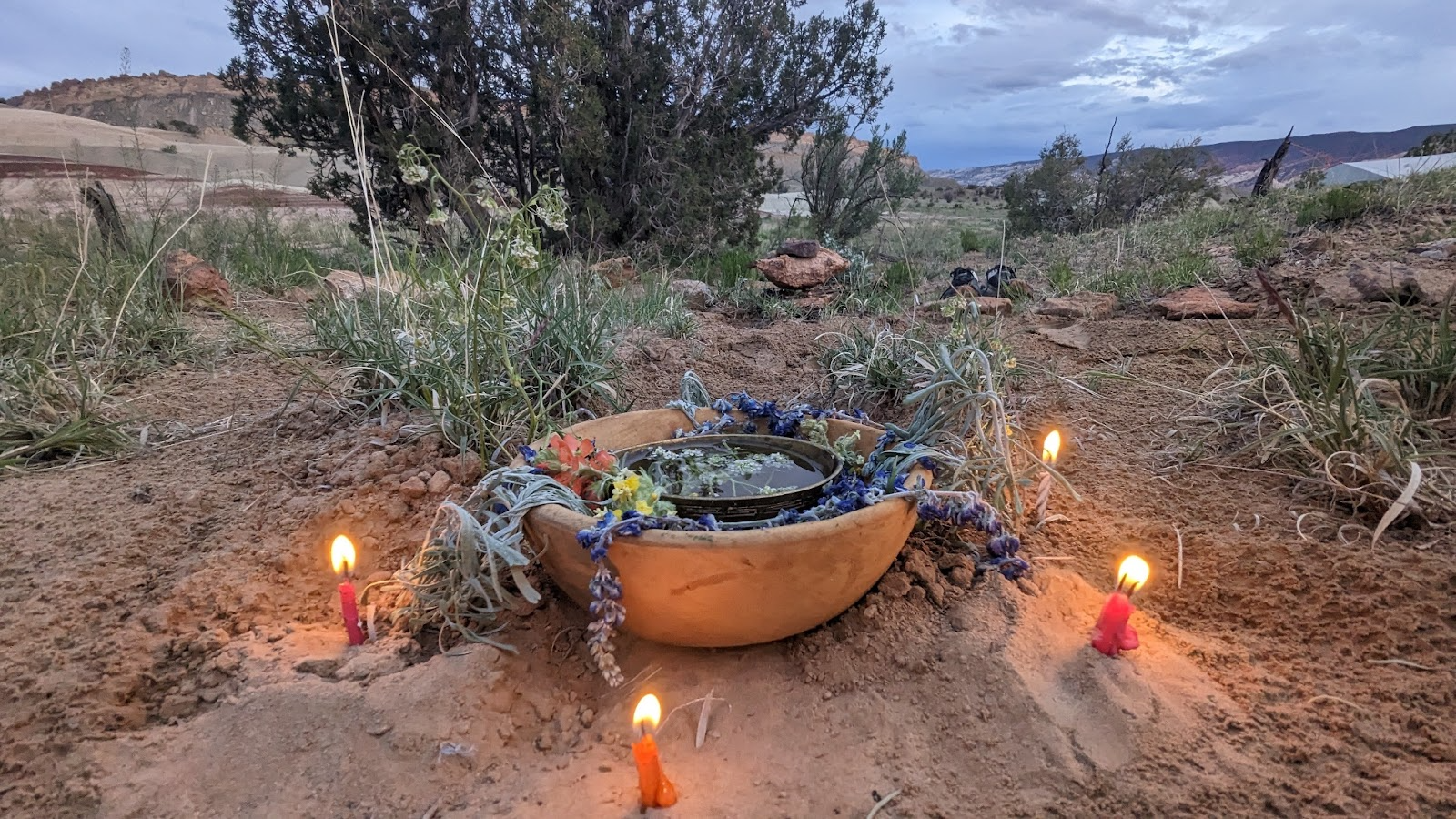
Photo provided
Sharing harvest with community
Returning to the community to share one's story is a pivotal and transformative aspect of the rites of passage. It marks the culmination of the journey, where the individual, now bearing the wisdom of their experience, re-enters the embrace of their community. This act of sharing is not merely a recounting of events but a profound offering of the newfound insights and personal growth. It's a moment where the old story meets the new, where the individual takes their place as a changed and wiser member of the community.
By sharing their story, they contribute to the collective wisdom of their community and offer a gift—a gift of renewal and a reminder of the interconnectedness of all beings.
"It’s like sharing your harvest,” as Gerlach put it.
In this exchange, both the individual and the community are enriched, deepening the bonds that tie them to one another and to the natural world. It's a testament to the reciprocity at the heart of Gerlach’s work, where personal growth extends to the betterment of the whole community.
Gerlach's work thrives in intergenerational and diverse communities, mirroring the resilience of a diverse garden compared to a single crop field. Diversity in age, gender and background enriches the rites of passage experience, making it more resilient to life's challenges. It creates situations of reciprocity, expanding our capacity to connect and experience the world.
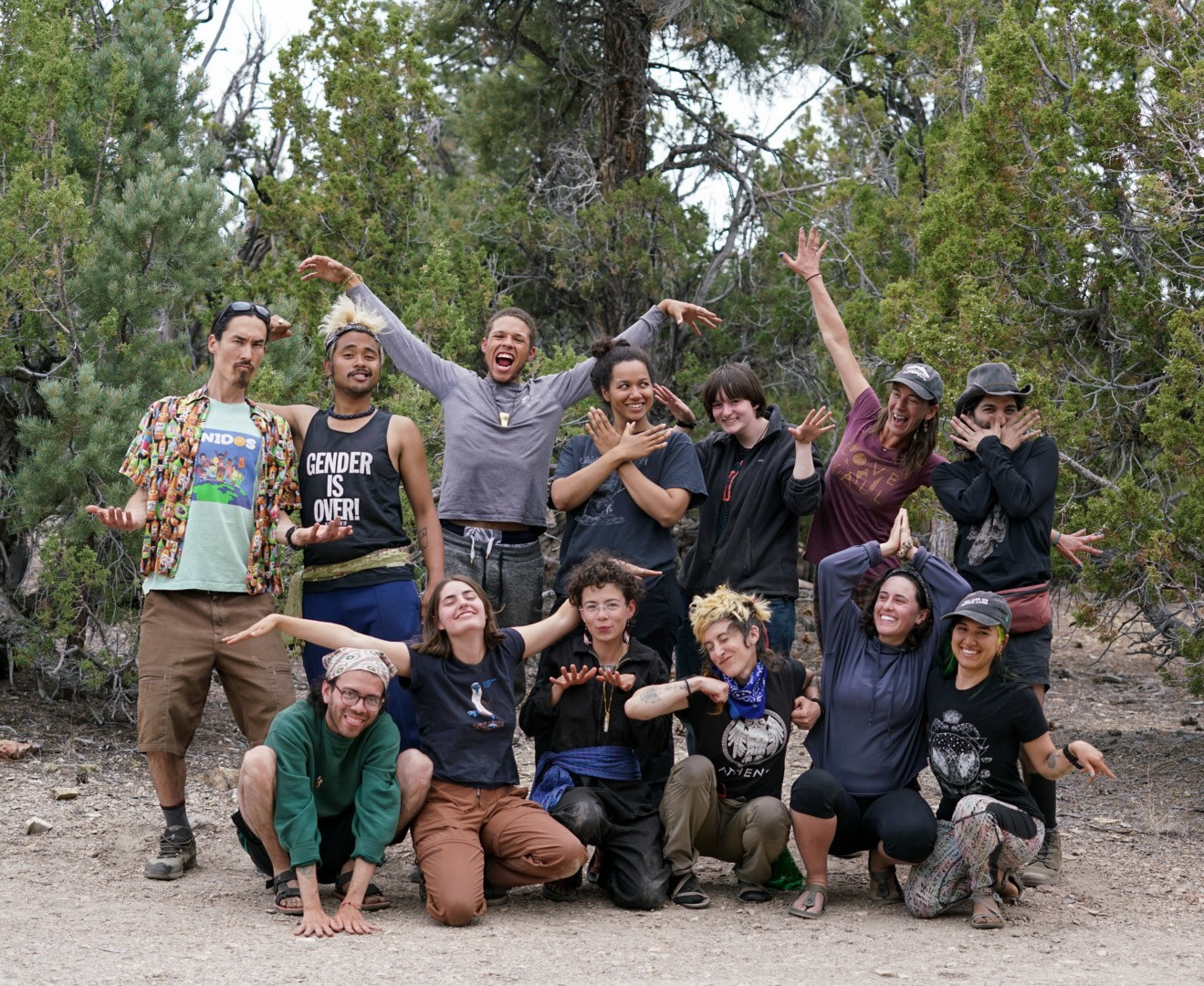
Photo by School of Lost Borders, Young Adult Program
Depths of the desert
One might wonder why Gerlach often chooses the desert as one of many backdrops for her transformative rites of passage. The desert, with its vast and unforgiving landscapes, may appear inhospitable at first glance. However, it is precisely this harsh beauty that makes it an ideal setting for profound transformation.
In the desert, there isn't a single tree to provide shelter or shade. Instead, one encounters chaparral or creosote bushes that offer minimal relief from the relentless sun. The absence of lush vegetation and the stark contrast to more hospitable environments forces participants to confront their vulnerability and connect with the simplicity of survival. It challenges them to push beyond their comfort zones and engage with the simplest form of survival. In this environment, individuals become acutely attuned to the details of their lives, much like examining individual grains of sand.
It is a place of silence and solitude, and there, participants often describe moments of profound stillness, where the only sounds are their own breath and the rustling of desert flora in the wind. This solitude creates an ideal environment for introspection, where individuals can explore the depths of their thoughts and emotions without the usual distractions of modern life.

Photo provided by Gretchen Gerlach
A beacon of hope
Gretchen Gerlach’s message reverberates as a powerful reminder of our roots in nature. It is a poignant call to return to our primal selves, to the timeless rhythms of the Earth, and to the wisdom inherent in the natural world. For too long, our species has drifted away from the embrace of the wild, believing ourselves to be separate from the ecosystems that sustain us. The consequences of this perceived separation are evident in the ecological crises we face, from climate change to biodiversity loss.
Yet, Gerlach’s work reminds us that the thread of connection between humans and nature has never been severed; it has merely grown faint in the clamor of modernity.
The act of returning to the wilderness, of immersing oneself in its rhythms and wisdom, is a profound act of reconciliation. It is an acknowledgment that we are not just observers of nature but integral parts of it. By embarking on these transformative journeys, individuals not only mark their personal transitions but also realign themselves with the greater ecological story of our planet. In the hushed stillness of the desert or the verdant embrace of the forest, they rediscover their place in the grand tapestry of life.
Gerlach invites us to consider this: How can we, in our own lives, return to the wilderness, reconnect with the natural world, and embark on our own rites of passage? How can we foster reciprocity, not only with the environment but with each other, recognizing the diverse and intergenerational tapestry of our communities?
Her work reminds us that the journey of personal growth and transformation is inexorably linked to the well-being of our planet and the harmony of our communities.
The principles embodied in this work are a beacon of hope. They remind us that by embracing our true nature, by immersing ourselves in the wisdom of the wild, and by sharing our stories with authenticity and vulnerability, we can bridge the perceived divides that separate us. We can find healing, not only for ourselves but for the world we inhabit.
We discover a path to renewal and a celebration of our interconnectedness.
Gerlach's transformative voyage is an invitation for us all to embark on our own journeys of self-discovery, healing and reconnection with the world. She reminds us, “when you go into nature, consider what you can give back. Pick up a piece of trash, say thank you, give a prayer. It can be that simple.”
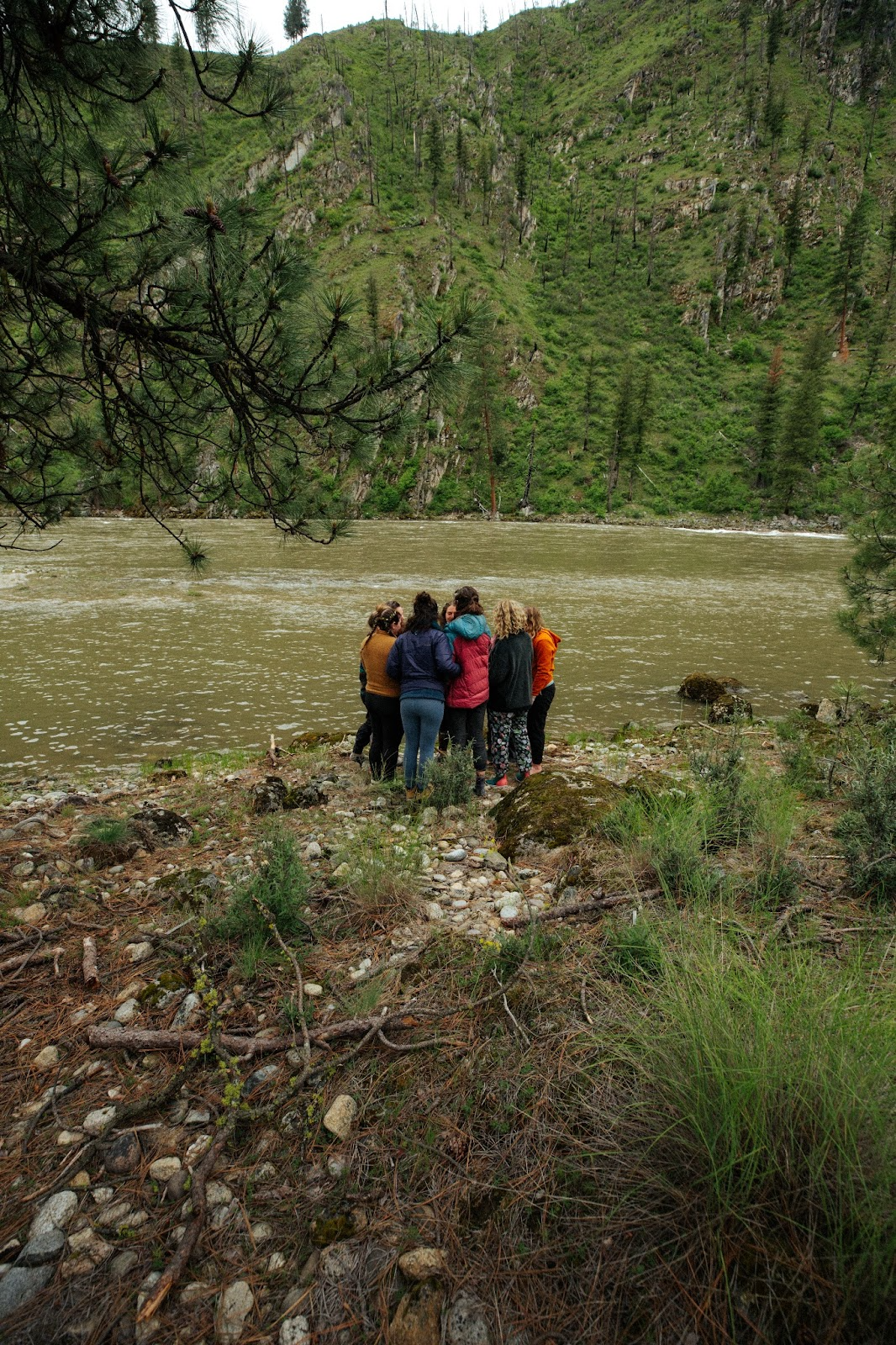
Photo provided
To learn more about Gerlach, visit https://naeturacara.com or https://schooloflostborders.org.
